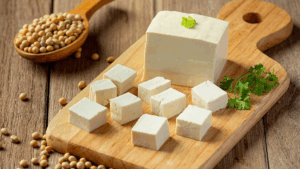Why Food Safety Agencies Declare Paneer as the Most Adulterated Product – Is It Safe to Eat.
Why Food Safety Agencies Declare Paneer as the Most Adulterated Product – Is It Safe to Eat.

Paneer, also known as Indian cottage cheese, is a staple in many Indian households. It’s loved for its versatility, nutrition, and flavor. However, in recent years, food safety agencies in India have raised alarms by declaring paneer as one of the most adulterated food items on the market. But what makes paneer so vulnerable to adulteration, and is it still safe to eat?
Why Is Paneer Commonly Adulterated?
1. High Demand, Low Regulation
Paneer is a high-demand product, especially in urban and semi-urban areas. The soaring consumption has led to a surge in unregulated, small-scale production units that often cut corners to meet demand and reduce costs.
2. Perishable Nature
Paneer is extremely perishable and has a short shelf life. Unscrupulous sellers may resort to adding chemicals or synthetic agents to preserve texture and freshness for longer durations.
3. Cost of Raw Materials
Milk, the primary ingredient of paneer, is expensive. To increase yield and profit margins, some producers dilute milk with water or use synthetic milk – which may contain harmful chemicals like urea, starch, detergent, or even formalin (a preservative used in laboratories).
Common Adulterants Found in Paneer
Food safety agencies and laboratories across various Indian states have found several adulterants in paneer samples, including:
Starch: Added to increase weight and thickness.
Detergent: Used in synthetic milk production, which is then turned into paneer.
Formalin: A toxic chemical used to prolong shelf life.
Synthetic milk: A harmful milk substitute made from chemicals and fats.
These adulterants can cause serious health issues such as food poisoning, gastrointestinal distress, liver and kidney damage, and in extreme cases, cancer.
What Food Safety Reports Say
Periodic testing by the Food Safety and Standards Authority of India (FSSAI) and state-level food safety departments has revealed disturbing data. In many instances, paneer samples have failed quality checks due to the presence of non-permitted substances. For example, in a nationwide survey, a large percentage of paneer samples were found to be substandard or unsafe.
The FSSAI has since increased inspections, encouraged consumer vigilance, and launched awareness campaigns to inform people about food adulteration.
Is It Safe to Eat Paneer?
Yes – but only when sourced responsibly.
Tips to Ensure Safe Consumption of Paneer:
Buy from Trusted Sources: Prefer paneer from reputed brands or dairy stores with proper licenses.
Check Labels: Packaged paneer should carry FSSAI marks, manufacturing and expiry dates, and nutritional information.
Home Tests: Simple home tests like adding iodine to detect starch, or rubbing to check for soapiness, can help detect some adulterants.
Make Paneer at Home: The safest option is to prepare paneer at home using fresh milk and lemon or vinegar. This gives you control over the quality and cleanliness.
Final Thoughts
Paneer is a nutritious and delicious food, but the risks associated with adulteration are real and concerning. Increased awareness, stricter enforcement, and consumer vigilance are key to ensuring food safety. By staying informed and choosing the right sources, you can continue enjoying paneer without compromising on health.
Do charity
#BanoKisiKiMuskan
Be someone’s reason to smile
For Donation call us @ 9711364750
www.padindia.org
Send ur resume at
info@padindia.org
https://www.youtube.com/padindia
https://www.linkedin.com/company/padindia
https://www.facebook.com/Padvoice/
https://www.facebook.com/voiceofindiantaxpayers/